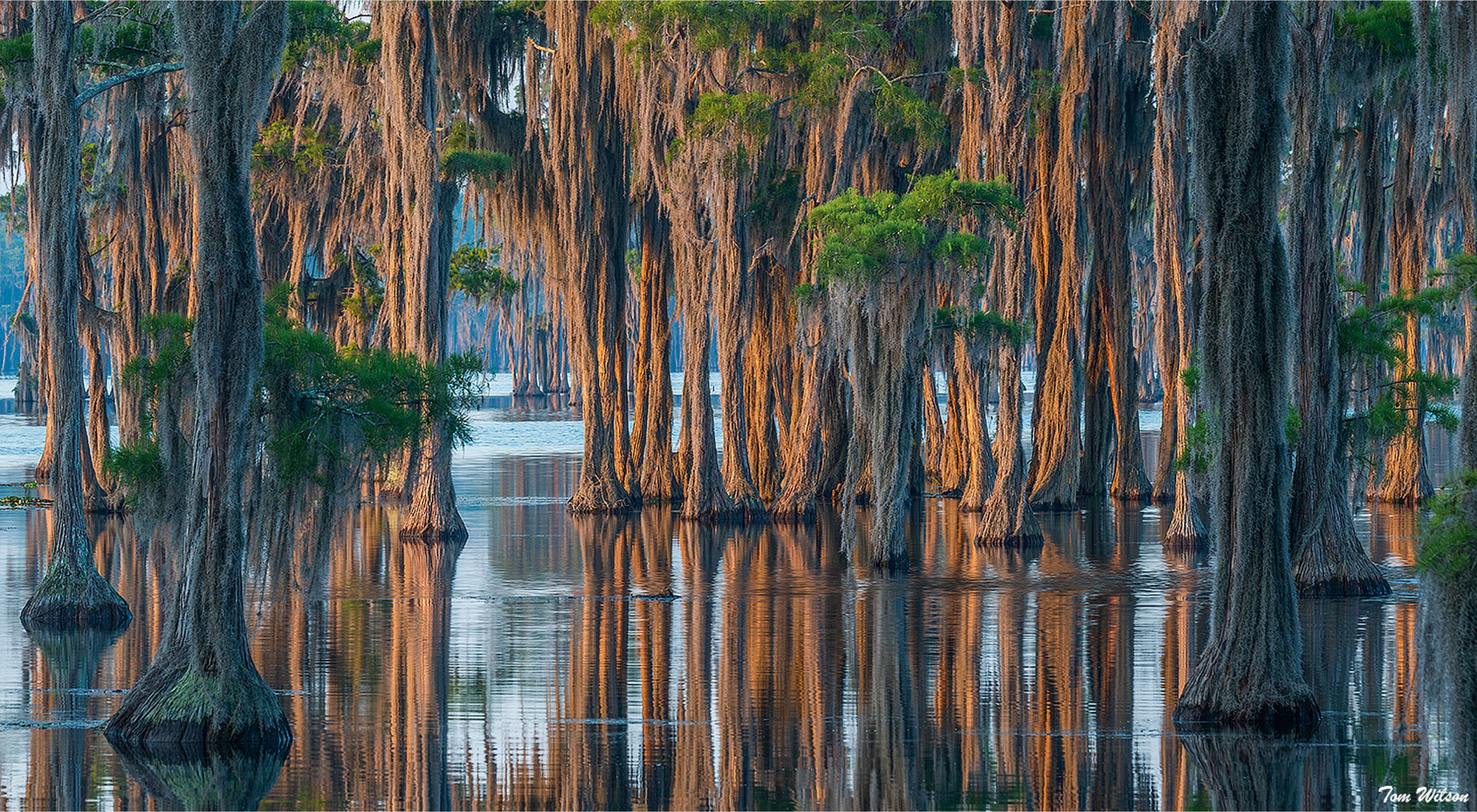Description
Outside of big reservoirs, you’re not likely to see open bodies of water in the lower coastal plain of Georgia, so Banks Lake makes an immediate impression. Seen from its northern edge, it’s a dramatic expanse of water with scattered groups of pond cypresses draped in gray-green Spanish moss.
But that’s only part of what makes it interesting. Banks Lake is one of four “Carolina bays” in the 13,000 acre Grand Bay-Banks Lake complex, the largest system of preserved Carolina bays in Georgia.
Carolina bays are really misnamed. They’re unique—and ancient—land depressions found along the eastern seaboard named for a type of tree (bay) often found growing in them. Scientists believe these depressions, which are usually oval shaped, were formed when the area was part of the sea floor. They can be filled with water, but aren’t always, and as in the Grand Bay-Banks Lake complex, they overlap and share a complicated hydrology.
The 106 acre Banks Lake Preserve is contiguous to Banks Lake National Wildlife Refuge, which protects 3,047 acres and is located about 30 miles from Valdosta and about 80 miles from Tallahassee, Florida, near the town of Lakeland. While some of Banks Lake is open water, much of the interior and boundary is marshy and dense, making some areas almost impenetrable. The Nature Conservancy’s Banks Lake Preserve is one such area.
The preserve is filled with a rich diversity of plant and animal life. Pond-cypress and cypress-blackgum forests dominate, but more diminutive plants like the fragrant water lily, blue-flag iris, red-root, and bladderwort also find a home in this swampy environment. So do a great variety of birds, game fish, alligators, bobcats, and the state-threatened round-tailed muskrat.
While plants and animals flourish, the Grand Bay-Banks Lake complex has experienced change over the last century. In particular, the use of water control devices has altered natural drying and fire cycles, which in turn affect the naturally occurring plant and animal communities.
That makes conservation work even more important. The Nature Conservancy cooperates with other stakeholders such as the Georgia Department of Natural Resources, the U.S. Fish and Wildlife Service, and Moody Air Force Base in conservation planning for the entire complex.
Animals At Risk
- Round-tailed Muskrat
Ecosystems at Risk
- Carolina Bay wetland complex
